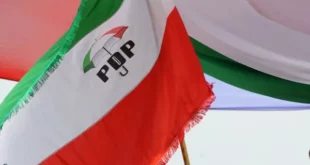In Ilorin, Kwara State, Igbo traders and businessmen under the aegis of the Igbo Traders Association have shut down their shops in protest against alleged intimidation and over-taxation by the Kwara State Internal Revenue Service (KWIRS).
The protest has left many customers stranded in various locations across the metropolis, including Oko Erin, Ibrahim Taiwo road, and General Hospital area.
The affected traders have appealed to Governor AbdulRahman AbdulRazaq for a tax waiver or tax holiday, citing the current economic hardship in the country.
They claim that many of their members stock their shops with goods received on credit and that the revenue agency has been intimidating them by locking up their business premises without giving them a fair hearing or adequate representation.
However, the KWIRS has defended its actions, stating that the enforcement exercise on tax collection from the Igbo traders was carried out following the institution of a constituted mobile court right within the premises of three identified recalcitrant taxpayers in the state.
The mobile court judge found the business owners guilty and ruled that their business outlets be placed under lock and key until they pay their dues as communicated to them.
Some observers have criticized the revenue agency’s approach, questioning the legality of the mobile court and accusing it of lacking equal representation and fair hearing.
Others have argued that the agency is insensitive and lacks moral grounds.
In response to these concerns, it is important to understand that the jurisdiction of a revenue court is established across the state and not restricted to its primary base or locations.
This provision of the law sets the record straight for those seeking clarity on the constitutional entitlement of the revenue courts to have held litigations within the premises of those identified as tax defaulters.
Furthermore, there are processes in the recovery of tax liability from servicing of various statutory notices on the taxpayer up to the litigation stage as enshrined in extant laws.
The litigation process against the taxpayers was initiated via an ex parte motion, which by law does not require representation of the other party.
Hence, the taxpayers were prosecuted without their legal representation.
While the situation has caused some tension among the affected traders and the wider business community, it is essential to recognize that the revenue agency has acted within its domain of establishing laws.
The agency must continue to engage with taxpayers and ensure that all parties understand their rights and responsibilities to avoid further misunderstandings and potential conflicts.
Subscribe to the Advocate News letter and receive news updates daily in your inbox.
 Advocate.ng Latest news update on politics, entertainment, sport and more
Advocate.ng Latest news update on politics, entertainment, sport and more




